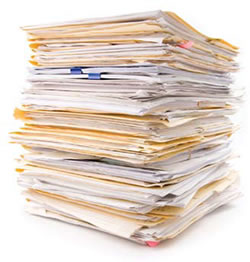Last week I got the opportunity to sit down with former Republican contender for mayor, Sam Katz.
We spoke on a number of subjects, more notably his view of nonpartisan elections in Philadelphia. He told me that he hadn’t given it much thought, not thinking it was worth pursuing.
Today, he followed up on our conversation with more thoughts on the subject.
As a practical matter, election law is controlled by the state—i.e. the legislature. Those laws are made by incumbents. The state has very few legislative and senate districts that are generally considered to be “in play”. So getting members of the House and Senate to vote for a system that would put their renomination at greater risk by enabling people outside of the party that nominated them to have a voice, isn’t something we’re likely to see anytime soon. Pursuing it as a political agenda item, would, in my view, be a waste of time and energy.
Interestingly, during my sit down with Ellen Kaplan, who was Katz’s issues director during his 1999 campaign, she offered a more interested view.
Nonpartisan elections are something we ought to look at. I don’t think it’s healthy to have just one party. It dissuades people from getting involved. Sam was somewhat of an aberration. He is a Republican, and he wasn’t. There was a Republican obstacle. For the GOP, he wasn’t one of their own.”
But Kaplan’s interest has been rare among my interviews.
Karen Kaufman, a associate professor of government and politics at the University of Maryland whom I interviewed last October, alluded to the large scholarly research on the matter.
Nonpartisan elections were devised to reduce turnout, which it does at the expense of already underrepresented voters… Nonpartisan elections are detrimental to minority voters. Partisan elections offer much higher turnout. The poorly educated are the first to ignore elections without party representation.”
Michael Meehan, general counsel of the city’s Republican committee, echoed many of Katz’s sentiments.
The state would never have a nonpartisan election. For us, I don’t know why you would do it. Philadelphia would be worse off with nonpartisan elections.”
Former Philadelphia Mayor and Katz competitor John Street seemed to agree.
To have nonpartisan elections, well, most Democrats would be against it. It would be just to compensate for the Republican Party. For African-Americans, it would dilute power. I would question the motives behind it. This is a proposition that really isn’t likely and makes it a little harder to do voter registration.”
Interestingly, Meehan, whom I interviewed before Street, brought up an issue that one wouldn’t think the loyal opposition would use to defend partisan politics. He noted that party affiliations, as most academic research notes, increase turnout among less educated, minority voters. This became a Street voting bloc, particularly in 2003.
John Street would never have been mayor with nonpartisan elections.”
Still, other urban Republicans have different takes.
Here, during a June 15, 2001 taping of the Howard Stern radio show, then-New York City Mayor Rudy Giuliani, before his post Sept 11 national acclaim, mentioned his interest in pursuing nonpartisan elections
[youtube=http://www.youtube.com/watch?v=OYX7jLpE3bE]

